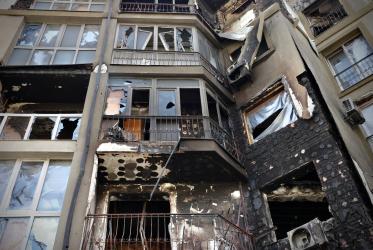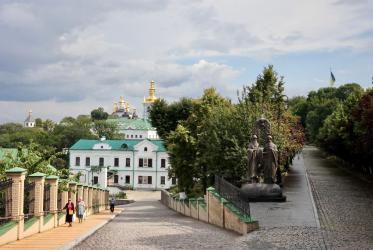Displaying 1 - 7 of 7
WCC well-represented in Religions for Peace leadership
07 October 2019
G20 summit: call to pray for peace in Hamburg
07 July 2017
Momentum builds for ban on nuclear weapons
16 December 2014
Indigenous faith leaders reflect on resilience and climate change
23 September 2014





